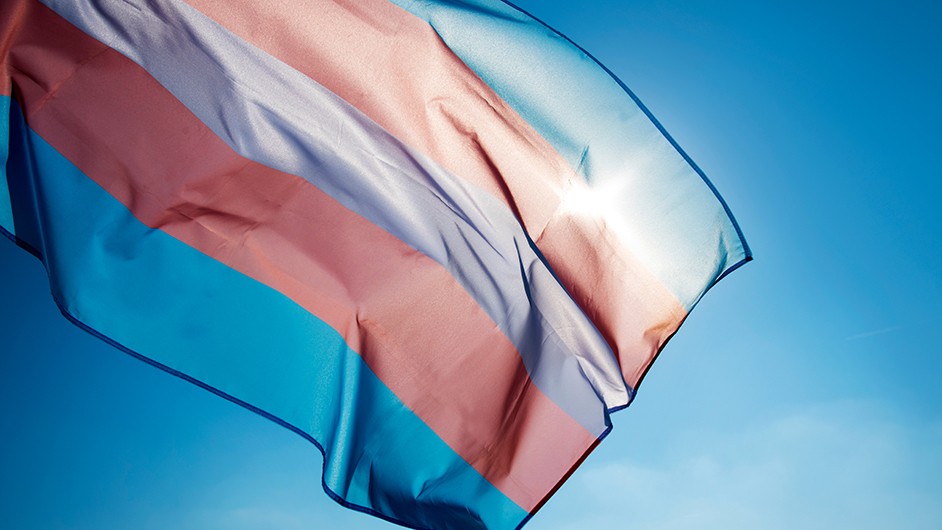Columbia Resources and Readings In Honor of Transgender Day of Visibility
March 31 marks International Transgender Day of Visibility. Columbia News compiled resources and readings on Columbia’s trans activists.

March 31 marks International Transgender Day of Visibility (#TDOV). The day is dedicated to honoring the victories and contributions of transgender and non-binary people while bringing awareness to the work that is still needed to protect trans lives.
To mark TDOV, Columbia News invites you to check out resources for transgender folks in the Columbia community and learn more about how cisgender allies can support their trans peers, coworkers, classmates, and friends. We’ve also suggested further reading to learn more about trans changemakers and allies in the Columbia community.
RESOURCES
Gender Identity: 5 Questions with Walter Bockting
Walter Bockting, PhD, director of the Gender Identity Program at Columbia University Irving Medical Center talks about gender identity, the Columbia Gender Identity Program, and where transgender care is going.
Dr. Bockting spoke to Columbia News about his work, the great strides he’s seen in his lifetime and the importance of representation.
Columbia Gender Identity Program
The Columbia Gender Identity Program provides compassionate, personalized, and expert care to children, adolescents, adults, and families across the gender and sexuality spectrum.
Everyone Has a Role in Gender-Affirming Care
When a person’s gender identity does not match their assigned sex at birth, they may need gender-affirming care. But what does that mean? Columbia University Irving Medical Center experts share insight.
LGBTQ @ Columbia | Office of Multicultural Affairs
LGBTQ @ Columbia provides undergraduate students with LGBTQ student group advising, events, education, advocacy, and other services and resources to help all students explore and better understand diverse queer and trans identities, experiences, and communities at Columbia and beyond.
The Trans @ Columbia page offers up-to-date policies, services and resources for Columbia's transgender community, including more information on the University's "preferred name" policy, housing options and more.
Check out their resource guide for LGBTQ+ community members and allies who want to learn more.
LGBTQ+ Resources at Columbia
In late 2020, the Office of the Provost published an LGBTQ+ Resource Guide and companion website, which serves as a comprehensive living repository of campus resources and relays recommendations for how everyone can be better, more visible LGBTQ+ allies. It also includes a specific section on trans resources.
Faculty Development recently led a session on ways to support lesbian, gay, bisexual and transgender students and colleagues, and covers a range of topics including language, support services, and resources.
Transgender and Gender Expansive Health Care Services at Columbia
Columbia Health offers a number of services for transgender and gender-expansive students.
Why Pronouns Matter
Asking for and using correct pronouns is a way to respect those around you and create an inclusive environment for people of all genders and gender expressions. Here is a short primer on pronoun use at Columbia, with some quick suggestions for how to be an ally to queer and transgender members of our University community.
FURTHER READING
Helping Transgender People Thrive
Jae Sevelius, PhD (they/them), who joined the Department of Psychiatry at Columbia in October 2022 as a professor of medical psychology, has devoted their career to advancing health and reducing barriers to care for transgender communities.
On Transgender Day of Visibility, Remembering the Historic Roots of the Queer Rights Movement
The LGBTQ community has seen immense gains in political power and social recognition, but trans women of color still face daily discrimination and violence, writes Teachers College Lecturer Gregory J. Payton, PhD.
Transgender Day of Visibility Q&A With Assistant Professor Kasey Jackman
Nursing Assistant Professor Kasey Jackman, whose works focuses on the prevention and treatment of mental health disparities among sexual and gender minority people, answered questions regarding these health disparities and shared how his work impacts the transgender and gender diverse community in honor of Transgender Day of Visibility on March 31.
Read Jack Halberstam’s TRANS*: A Quick and Quirky Account of Gender and Gender Variability
In Trans*, Jack Halberstam, professor of English and comparative literature, explores recent shifts in the meaning and representation of gender and the possibilities for a non-gendered, gender-optional, or gender-queer future. He considers what prompted such an extensive rethinking of gendered embodiment; how a once stigmatized identity became so central to Western articulations of self; and the public response to the new definitions and understandings of sex and the gendered body. Read an excerpt.
Here, Professor Halberstam talks about his books Female Masculinity and The Queer Art of Failure and writing in a voice that is specifically his.
Sociologist Tey Meadow Studies Changing Landscape for Trans Kids
Tey Meadow dedicates her first book “to the kids who are different and the adults who ease the way.” Published in 2018 by University of California Press, Trans Kids: Being Gendered in the Twenty-First Century, is about how families navigate this fast-moving social change.
Ezra Young LAW’12: A Transgender Lawyer for Our Times
Ezra Young is an impact litigator who takes on cases to ensure the civil rights of other transgender people and to advocate for systemic change and safeguards.
Visionary Engineer Lynn Conway SEAS’62, SEAS’63 Heralds Dawn of the Techno-Social Age
Engineer and computer scientist Lynn Conway is a pioneer of microelectronics chip design and an early advocate for transgender people, having faced challenges in her career when she decided to transition from male to female in 1968.
Gender-affirming Care Saves Lives
Growing legislative attempts to limit, ban, or criminalize access to this critical model of medical care endangers the health and well-being of transgender and nonbinary youth, write Kareen M. Matouk and Melina Wald, psychologists with Columbia University Irving Medical Center's Gender Identity Program.